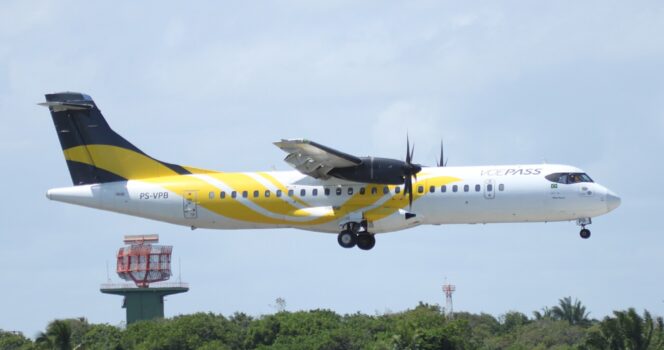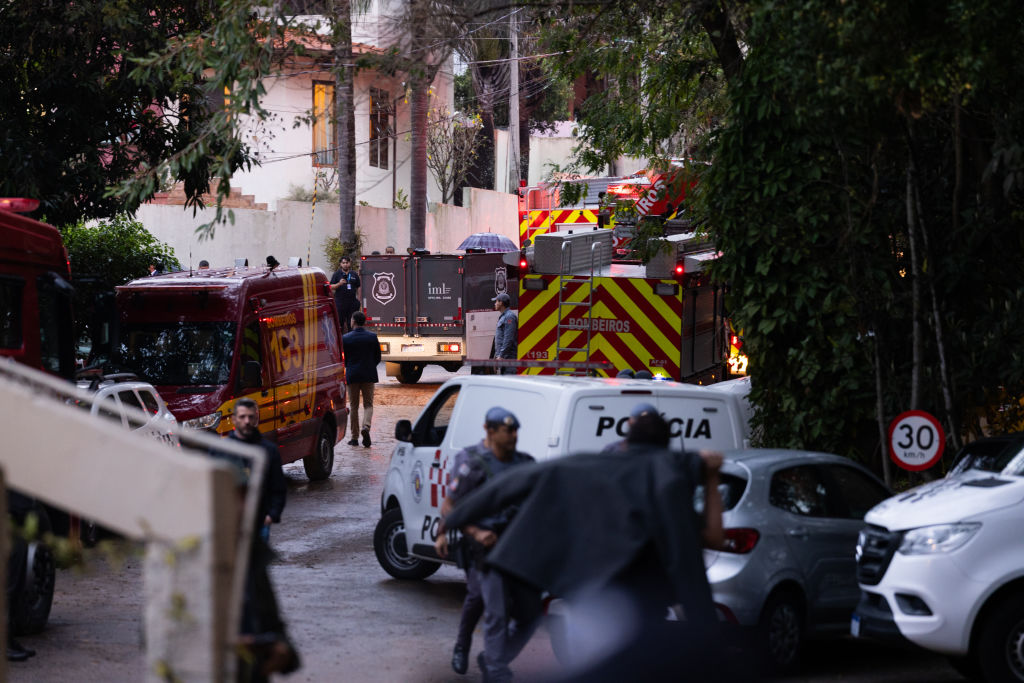
In August 2024, Voepass Flight 2283 took off for a routine short flight from Cascavel to Guarulhos, Brazil.
But what should have been a simple trip turned into a national tragedy — 62 people lost their lives in the deadliest aviation accident in Brazil in nearly 20 years.
So what went horribly wrong?
Experienced pilots
On August 9, 2024, Voepass Flight 2283 took off from Cascavel, Paraná, bound for Guarulhos, São Paulo.
But what should have been a routine 1 hour and 45-minute flight tragically turned into Brazil’s deadliest aviation accident in nearly 20 years.
All 62 people on board, 58 passengers and 4 crew, lost their lives.
The plane was an ATR 72-500, piloted by the experienced Captain Danilo Santos Romano, 35, and First Officer Humberto Alencar e Silva, 61.

Both had over 5,000 hours of flight time, and on paper, nothing suggested danger.
But the weather told a different story. Turbulence, thunderstorms, and severe icing conditions were reported along their path.
Just 15 minutes into the flight, while climbing to 17,000 feet, the crew activated the propeller anti-icing and airframe de-icing systems, a standard procedure in such conditions. But seconds later, the airframe de-icing system turned off unexpectedly, and the plane’s Electronic Ice Detector began alerting repeatedly.
Warnings intensified
For the next hour, the ATR flew in and out of dangerous icing conditions.
Temperatures hovered around -9°C with strong westerly winds. Even when the ice detector sounded multiple times, the crew did not reactivate the airframe de-icing system immediately.
As Flight 2283 approached its destination, warnings intensified. The Aircraft Performance Monitoring system alerted the crew to degraded performance.
Airspeed dropped dangerously low, and the plane was clearly struggling.
Pilot’s final words
Then, in a heartbreaking moment captured on the black box, the final words of the crew revealed their desperate attempt to save the flight. The co-pilot can be heard asking, “What is going on?” as the plane began a steep, uncontrollable descent.
He urged the captain to stabilize the aircraft, but it was too late.
The ATR spiraled into a flat spin, rotating five times before crashing into the ground near the town of Vinhedo, forty nautical miles northwest of Guarulhos Airport.
The aircraft burst into flames and everyone onboard died.
Among the victims were eight doctors, including six oncologists en route to a cancer conference in São Paulo. The tragedy also claimed the lives of four professors from Western Paraná State University, two employees from the Federal University of Technology – Paraná, and two young children.

In a twist of fate, at least ten passengers who had tickets for the flight missed boarding because they were waiting at the wrong gate.
Miraculously, no one on the ground in Vinhedo was injured, but one home was damaged. Local residents recounted the horror.
“When I heard the sound of the plane falling, I looked out my window at home and saw the moment it crashed,” eye-witness Felipe Magalhaes said.
Nathalie Cicari added: “I went out on the balcony and saw the plane spinning. Within seconds, I realized it was not a normal movement for a plane.”
Suspended Voepass’ operating license
Footage circulated on social media showing the terrifying spin, and TV Globo reported that screams could even be heard in the cockpit audio just seconds before impact.
Despite the crash, investigators found no signs of engine failure or mechanical malfunction that could have immediately explained the tragedy. According to the preliminary report from the aviation accident commission, the pilots struggled with ice buildup and had difficulties managing the de-icing systems during the flight.
Brazil’s President, Luiz Inácio Lula da Silva, expressed his solidarity with the families and held a minute of silence to honor those who perished.
The aftermath of the crash continues to unfold. On March 11, 2025, Brazil’s National Civil Aviation Agency (ANAC) suspended Voepass’ operating license, citing the airline’s “inability to solve irregularities identified during the supervision, as well as the violation of previously established conditions for the continuity of the operation within the required safety standards.”
Anonymous claims
Then, on August 2, 2025, G1 reported claims from an anonymous former Voepass employee. According to the source, a pilot who flew the aircraft PS-VPB the night before the crash verbally reported a fault in its de-icing system, but it was not recorded in the technical logbook.
Under ANAC regulations, this would have prevented the aircraft from flying until the problem was resolved. The former employee also alleged that the company’s leadership routinely pressured staff to avoid grounding aircraft for maintenance.
READ MORE
- Skydiver’s final words as he realized he forgot his parachute after jumping
- If you see window grills with a curve at the bottom here’s what it means




